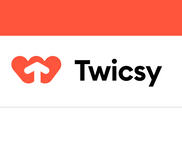請求配置
下列為所有可用配置選項,僅 url 為必要選項。若 method 未指定,將預設使用 GET 方法。
{
// 請求所要導向的伺服器 URL
url: '/user',
// `method` 為發起請求時所使用的方法
method: 'get', // default
// `baseURL` 將前置於 `url` 前面,除非 `url` 是一個絕對 URL。
// 設置 `baseURL` 後,對於該 axios 實體只需傳入相對 URL 至請求方法中。
baseURL: 'https://some-domain.com/api',
// `transformRequest` 允許在發送給伺服器之前,修改請求資料
// 僅可使用於 ‘PUT', 'POST', 'PATCH' 和 ‘DELETE’ 請求方法
// 陣列中最後一個函式必須回傳字串、Buffer 實體、ArrayBuffer、FormData 或 Stream
// 你也可以修改標頭屬性
transformRequest: [function (data, headers) {
// Do whatever you want to transform the data
return data;
}],
// `transformResponse` 允許於傳遞給 then/catch 之前,修改回應資料
// 將會傳遞給 then/catch
transformResponse: [function (data) {
// Do whatever you want to transform the data
return data;
}],
// `headers` 為自定義的標頭
headers: {'X-Requested-With': 'XMLHttpRequest'},
// `params` 是要隨著請求發送的 URL 參數
// 必須為純物件或 URLSearchParams 物件
// 注意:若參數為 null 或 undefined,則不會渲染於 URL 中。
params: {
ID: 12345
},
// `paramsSerializer` 為序列化 params 參數的可選功能
// 如:https://www.npmjs.com/package/qs 或 http://api.jquery.com/jquery.param/
paramsSerializer: function (params) {
return Qs.stringify(params, {arrayFormat: 'brackets'})
},
// `data` 為請求資料的主體
// 只適用於請求方法為 'PUT', 'POST', 'DELETE' 或'PATCH'
// 當為設置 `transformRequest` 時,資料需為以下類型之一:
// - 字串、純物件、ArrayBuffer、ArrayBufferView、URLSearchParams
// - 僅瀏覽器:FormData、File、Blob
// - 僅 node.js:Stream、Buffer
data: {
firstName: 'Fred'
},
// 另一種附加資料至主體的方法
// POST 方法
// 只有數值發送,而不發送鍵值
data: 'Country=Brasil&City=Belo Horizonte',
// `timeout` 指定請求逾時的前的時長(毫秒)
// 若請求時間超過了 `timeout` ,請求將被中止。
timeout: 1000, // 預設為 `0` (無逾時)
// `withCredentials` 表示發送請求時是否使用跨網站訪問控制
// 需搭配憑證使用
withCredentials: false, // 預設
// `adapter` 允許自定義請求處理函數便於進行測試
// 回傳 promise 並提供有效的回應(參見 lib/adapters/README.md)
adapter: function (config) {
/* ... */
},
// `auth` 指定使用 HTTP 基本身分認證
// 此將會設置 `Authorization` 標頭,並複寫現有的內容
// 請注意只有 HTTP 基本身分認證透過此參數設置
// 若使用 Bearer 令牌或其他方式,請使用 `Authorization` 來自行定義標頭。
auth: {
username: 'janedoe',
password: 's00pers3cret'
},
// `responseType` 指定伺服器將回應的資料型態
// 可用選項有:'arraybuffer', 'document', 'json', 'text', 'stream'
// 僅瀏覽器端可用:’blob'
responseType: 'json', // 預設
// `responseEncoding` 指定解析回應的編碼方式(僅 Node.js)
// 注意:當為瀏覽器端或 `responseType` 設為 'stream' 時無效。
responseEncoding: 'utf8', // 預設
// `xsrfCookieName` 為作為 xsrf令牌 的 cookie 名稱
xsrfCookieName: 'XSRF-TOKEN', // 預設
// `xsrfHeaderName` 為攜帶 xsrf 令牌 的 HTTP 標頭
xsrfHeaderName: 'X-XSRF-TOKEN', // 預設
// `onUploadProgress` 允許處理上傳時的進度事件
// 僅瀏覽器端
onUploadProgress: function (progressEvent) {
// Do whatever you want with the native progress event
},
// `onDownloadProgress` 允許處理下載時的進度事件
// 僅瀏覽器端 only
onDownloadProgress: function (progressEvent) {
// Do whatever you want with the native progress event
},
// `maxContentLength` 定義最大回應大小(Bytes),僅 Node.js
maxContentLength: 2000,
// `maxBodyLength` 定義請求的最大主體大小(Bytes),僅 Node.js
maxBodyLength: 2000,
// `validateStatus` 定義是否 resolve 或 reject 給定的特定 HTTP 狀態碼的回應。
// 如果 `validateStatus` 回傳 `true` (或設為 `null`、`undefined`),該 promise 將被 resolve;反之,則會被 reject
validateStatus: function (status) {
return status >= 200 && status < 300; // 預設
},
// `maxRedirects` 定義在 node.js 中重新導向的最大次數
// 若設為 `0` ,將不會進入任何重新導向
maxRedirects: 5, // 預設
// `socketPath` 定義在 node.js 中 使用的 UNIX Socket
// 如: ‘/var/run/docker.sock' 以向 Docker 守護執行序(Daemon)發送請求。
// 僅可以指定為 `socketPath` 或 `proxy`
// 若都指定了,則優先使用 `socketPath`
socketPath: null, // 預設
// `httpAgent` 和 `httpsAgent` 定義了在 node.js 中個別處理 http 或 https 請求時要使用的自定義代理。並允許添加選項,例如預設未啟用的 `keepAlive`。
httpAgent: new http.Agent({ keepAlive: true }),
httpsAgent: new https.Agent({ keepAlive: true }),
// `proxy` 定義了代理伺服器的主機名稱、埠口和協議。
// 您也可以使用傳統的 `http_proxy` 和 `https_proxy` 環境變數來定義您的代理。
// 如果您正在使用環境變數進行代理配置,則還可以定義一個 `no_proxy` 環境變數作為不需要代理的域名列表(以逗號分隔)。
// 使用 `false` 來禁用代理,忽略環境變數。
// `auth` 表示應該使用 HTTP 基本驗證連接到代理並提供認證信息。
// 這將設置一個 `Proxy-Authorization` 標頭,覆蓋您使用 `headers` 設置的任何現有 `Proxy-Authorization` 自定義標頭。
// 如果代理伺服器使用 HTTPS,則必須將協議設置為 `https`。
proxy: {
protocol: 'https',
host: '127.0.0.1',
port: 9000,
auth: {
username: 'mikeymike',
password: 'rapunz3l'
}
},
// `cancelToken` 設置一個用於取消請求的取消token
// (有關詳細訊息,請查看下方 `取消請求`)
cancelToken: new CancelToken(function (cancel) {
}),
// `decompress` 表示回應正文是否需要自動解壓縮。
// 若設為 `true` 將從解壓縮的回應物件中自動移除 `content-encoding` 標頭
// - Node 有效 (XHR無法關閉解壓縮)
decompress: true // 預設值
}





